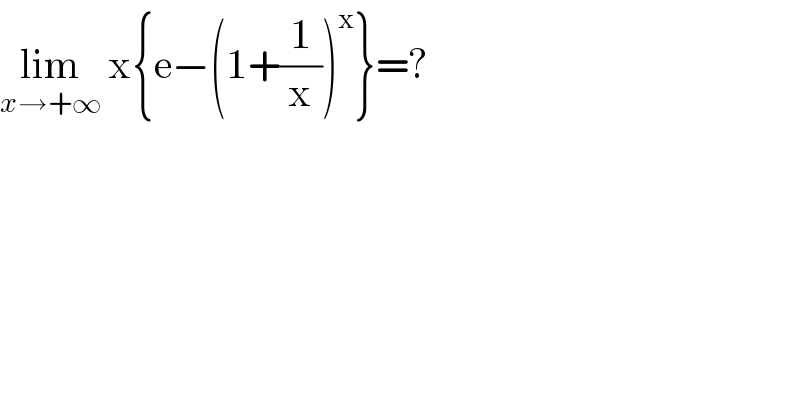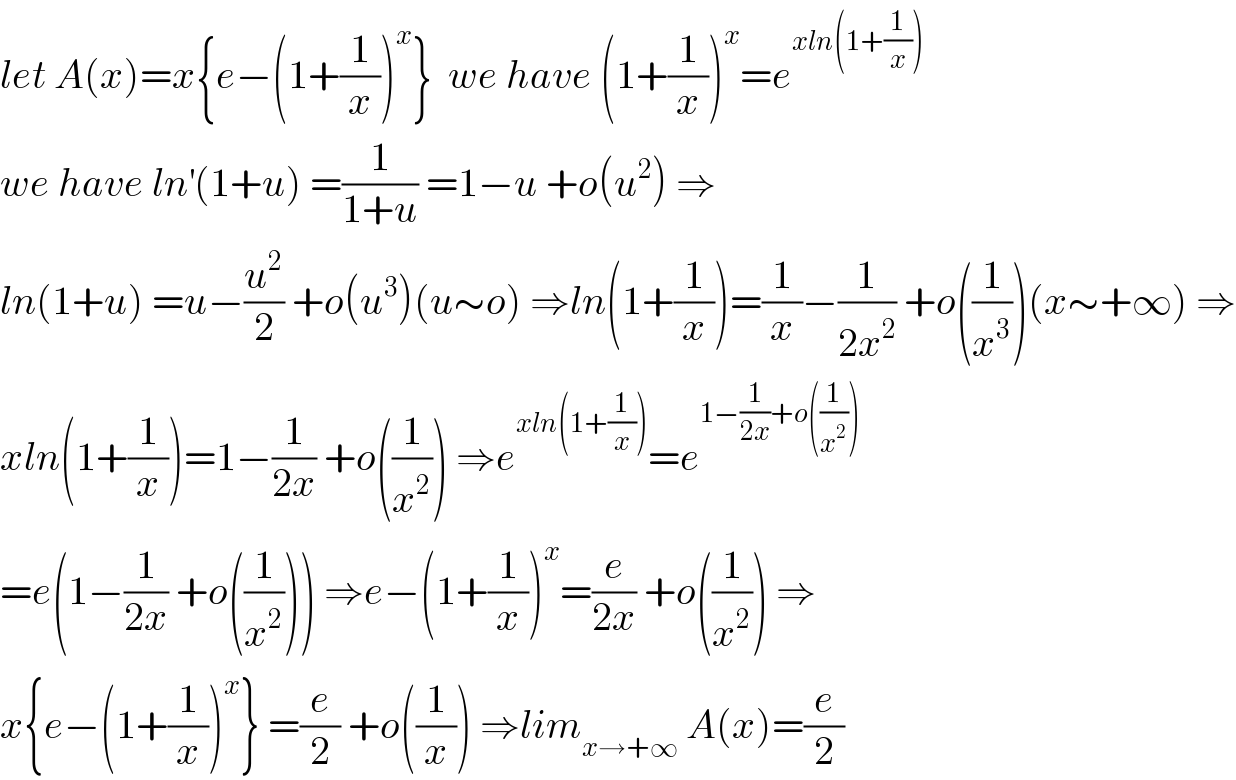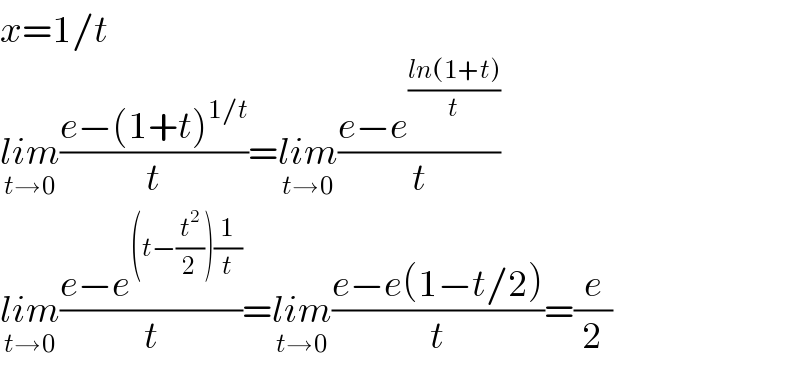Question Number 79236 by jagoll last updated on 23/Jan/20

Commented by mathmax by abdo last updated on 23/Jan/20

Commented by jagoll last updated on 23/Jan/20

Commented by mathmax by abdo last updated on 24/Jan/20

Answered by Smail last updated on 23/Jan/20

Commented by jagoll last updated on 23/Jan/20

